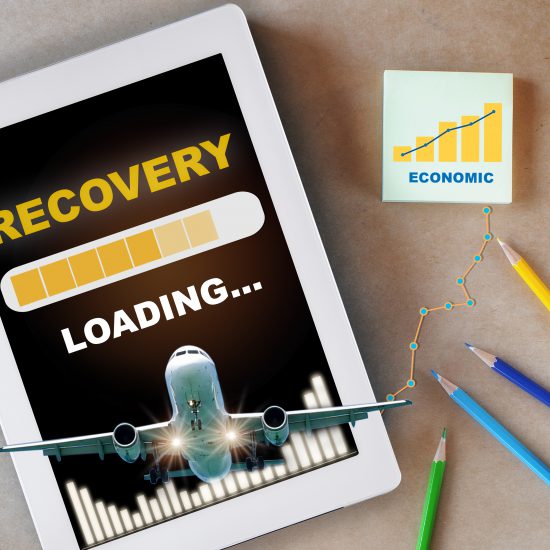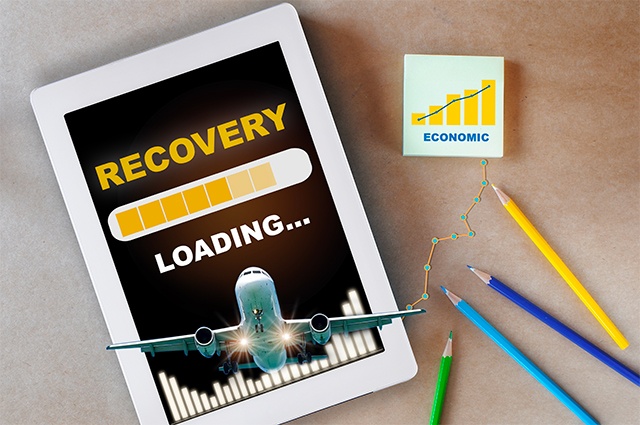
4 Trends That Will Shape The Business Events Scene Post-Covid
As vaccination rates around the world increase and borders slowly reopen, it is still not crystal clear how things will pan out for business travel or the business events industry in the near future. It is also increasingly difficult to plan large-scale or in-person events, due to the emergence of new Covid-19 variants and constantly changing government guidelines.
Even when in-person events resume, it’ll mostly be confined to a domestic audience, with the likelihood of a virtual global audience. In light of this global climate, here are some observations that will continue to shape the business events scene.
1. Venues to be hybrid and virtual ready
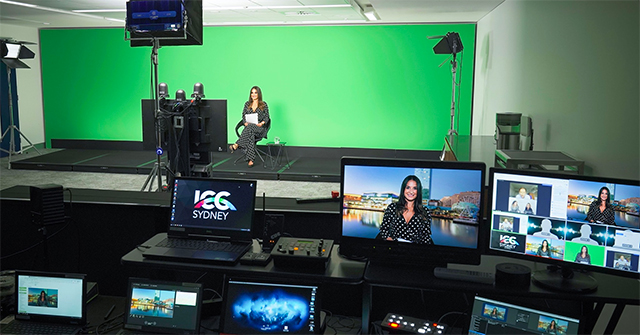
As a result of the pandemic, large-scale venues and hotels have had to redefine their spaces. And as hybrid events continue to grow in popularity, it is crucial for such venues to have the tech capability and infrastructure in place.
For example, the International Convention Centre Sydney (ICC Sydney) rolled out its Media Studio – a dedicated permanent studio space offering broadcast recording services, live streaming and digital event solutions.
Over in Singapore, hotels such as Pan Pacific Singapore, Centennial Singapore, and JW Marriott Singapore have all unveiled hybrid studios as MICE events in Singapore start to gradually resume again. Even as in-person meetings resume, there is a need for a virtual component for those who cannot attend conferences in person.
“As we navigate through these unchartered times for businesses, this a perfect solution that will allow large scale events to continue without compromising the safety and wellbeing of guests. Organisers are also able to add catering as well as accommodation to the event, providing their team and client a more holistic experience,” said Mike Williamson, general manager, Conrad Centennial Singapore.
2. Education and content high in importance
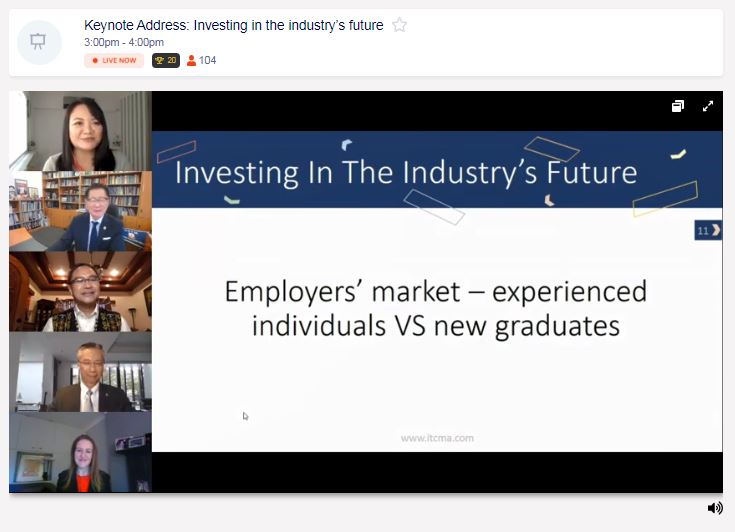
It also looks that the MICE industry will be dealing with hybrid events for years to come, and if attendees have been experiencing well-run virtual events, they could potentially want to continue tuning in from home should they be unable to travel far in the future.
As such, a hybrid or virtual event with engaging educational content and networking opportunities would go far in the current climate.
This is supported by the 2021 Global Meetings and Events Forecast from American Express Meetings & Events, which states: “From a programme design standpoint, the challenge of keeping people’s attention once they have logged in must be considered – for example, through shorter overall length, more focus on content, or ongoing activities such as polls and breakout room discussions.”
“There’s a lot of free stuff going on online, so planners have to think about how their virtual event can provide a compelling story backed by solid content to engage, and keep your delegates on your page. Event planners have to entertain the audience, and treat it like a TV show with breaks and interludes. “Most importantly, content is king. If your content is solid, people will pay (to attend),” according to Professional Convention Management Association’s (PCMA) consultant Karen Bolinger.
At PCMA’s Convening Asia Pacific: Global Recovery Forum in February 2021, curating content was the top priority, and the event’s content streams were based on specific insights from PCMA research.
IT&CM Asia and CTW Asia-Pacific, Asia’s leading MICE and Corporate Travel event, also emphasises compelling knowledge content helmed by the industry’s regional and global thought-leaders as part of its business-focused and networking programme. Aside from PCMA, other content partners include ICCA (International Congress and Convention Association), IAPCO (International Association of Professional Congress Organizers), SITE (Society of Incentive & Travel Executives), among others.
For its virtual editions, the event programme’s live and interactive networking keeps buyer and visitor attendees entertained and engaged with hosted brands. “Great content comes in many formats. We’ve found success in curated sessions that draw on attendee’s active participation, as well as a best-in-industry incentive scheme that rewards their time with us,” said Cheryl Tan, head of events at TTG Asia Media.
Multi-time buyer at IT&CM and CTW’s events, Ben Gosman, managing director of Netherlands-based Free Style Events, observed: “The fight for the eyeball is crucial, which can be lost easily online due to the many options and possibilities.”
3. Sustainability comes into keen focus
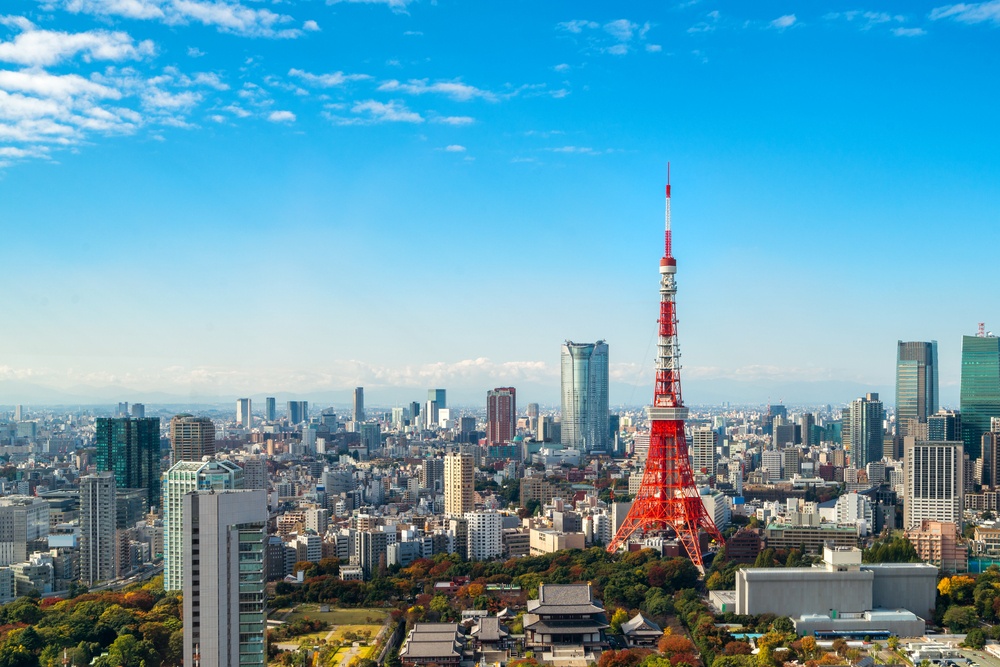
Business events are, without a doubt, a major economic driver but it is also a significant generator of waste through excess food and unwanted marketing collateral and souvenirs. But recognition of this weakness is growing and many business events venues in Asia-Pacific are doing their best to strive for better sustainability credentials.
One example is the Melbourne Convention and Exhibition Centre (MCEC), which recently unveiled a brand new five-year sustainability strategy.
MCEC’s sustainability manager, Samantha Ferrier: “We’re aiming high, with a target to achieve net-zero emissions by 2030. We are working to eliminate problematic and unnecessary single-use plastics, divert 90 per cent of waste from landfills by 2025, and be completely powered by renewable electricity by 2028.
“At the same time, we will contribute towards increasing Victoria’s biodiversity, habitats and ecosystem health by 2025, continue to source sustainably and support OzHarvest to rescue and redistribute food to people in need.”
In July 2021, The Tokyo Convention & Visitors Bureau released sustainable offerings to enable business event organisers to hold conferences in the Japanese capital in a more socially and environmentally responsible way.
Entitled Sustainability Experience in Tokyo, the initiative aims to introduce the city’s rich culture and history in a unique, thought-provoking way via 11 programmes designed to contribute to the United Nations’ Sustainable Development Goals. Programmes have a focus on nature, food, crafts and physical activities.
4. Building a future-ready MICE workforce

The industry should also be using this downtime to prepare itself, by reviewing and refining its business models and processes, and capitalise on the opportunity to reskill and upskill its workforce.
Recognising that upskilling and reskilling have become critical conditions for business events professionals to get through the current downturn, and well into the altered future of corporate gatherings in a post-Covid-19 world, Professional Convention Management Association (PCMA) has also expanded its support for members’ education.
In an interview with TTGmice, Sherrif Karamat, president and CEO of PCMA, revealed that the association of 7,000 global business events strategists has provided almost US$1 million in scholarships to help members in 2020.
Similarly, IAPCO set up a virtual training platform webEDGE last September, aimed at upskilling Malaysia’s professionals to help them the highest standards of project management skills for conference and event delivery, and to provide Malaysia with a competitive advantage when bidding for international events.
Tan Mei Phing, director of business events, Malaysia Convention & Exhibition Bureau opined there will be “a surge of events in Malaysia in the coming years” and urged event professionals to seize the opportunity to arm themselves with skills that will help them be ready for future demand. Having more certified homegrown PCOs, she added, will be imperative to the growth of Malaysia’s conference and congress sector.
Meanwhile, on a national level, developing skilled local tourism professionals through the education system is at the core of the Philippine Department of Tourism’s (DOT) five-year industry manpower development plan.
DOT secretary Bernadette Romulo-Puyat virtually launched The Philippine Tourism Human Capital Development Plan for 2021-2025, designed to ensure the steady supply of trained manpower and to address challenges facing tourism human capital development.
Thailand has similarly ramped up local business events capability in preparation for future events.
“This year, we’re producing e-learning courses in MICE with various themes such as incentive travel, professional and sustainable event organisation, community development and English for MICE,” said Supawan Teerarat, Thailand Convention & Exhibition Bureau’s senior vice president development and innovation.

